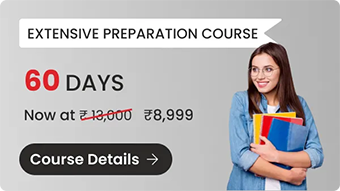• IELTS
IELTS Speaking Samples and Answers
11353 Reads
3 min Read
The blog first discusses the IELTS speaking module in general. Then, it moves on to present questions for each of the three parts of the speaking test. The blog contains a complete model speaking test with sample answers included for students to learn.
The three parts of the IELTS Speaking test take between five and fifteen minutes to complete. The sub-test consists of a talk with a qualified examiner that is recorded for later analysis.
The IELTS Speaking examination consists of three main sections (part 1: introduction and interview, part 2: cue card/candidate task card, and part 3: details discussion), and for the sake of clarity, the examinees are evaluated twice.
IELTS Speaking Topics from actual IELTS examinations are included in this section. To help you prepare for the IELTS Speaking Exam, it provides you with both speaking themes and a sample response.
Full IELTS Speaking Samples, taken from the actual IELTS examinations, are provided in this section. To become familiar with the three major areas of the IELTS Speaking test and to learn how to respond to these questions, read as many speaking samples as you like.
Your speaking skills would improve as a result of the frequent challenges posed by strange and unanticipated queries. In sections 1, 2, and 3 of the speaking exam, these questions help you get ready for the real questions that could be on a real examination.
Also read: IELTS Eligibility Criteria
IELTS Speaking Test 1
Part 1 Topic: "Fast food"
Part 2 Topic: "Describe some technology that you decided to stop using."
Part 3 Topic: "Computer games".
Part 1 - Introduction & Interview
Topic - "Fast food"
Q 1: Which fast food options have you tried? Why or Why Not?
A 1: When I was a teenager, I enjoyed fast food. I no longer have a yearning for fast food because I am in my early thirties, but this does not mean that I never do. Well, it would take a while to list all the many kinds of fast food I've tried! Burgers, sandwiches, pizza, crispy chicken, french fries, chicken nuggets, apple pies, tacos, burritos, various kinds of coffee, and shakes would be my favourites from this list. They were good, simple to find, and ready to eat or drink, so I generally ate them because it was fashionable at the time.
Q 2: Do you ever use a microwave to quickly cook food? Why or Why Not?
A 2: We use our huge, contemporary microwave oven in our home to prepare a wide range of items, including baked potatoes, pizza, Spanish rice, bacon sandwiches, several kinds of pastries, grilled chicken, and more. I have quickly created a few of these things myself. I generally use my microwave to reheat meals, but they may also be used to swiftly and efficiently cook certain foods. For instance, for someone like me, baking a chocolate cake without the use of a microwave would be rather laborious.
Q 3: How common are fast food restaurants in your area? Why or Why Not?
A 3: The answer is, "Ah, fast food restaurants are all over where I live." A row of various fast-food restaurants and shops is only a few blocks away, and their number is increasing more quickly than before. They are incredibly well-liked, especially among young people, thanks to their flavour and variety. Due to the time and money they save, many adults prefer to have them. People frequently choose fast food while knowing it is unhealthy since they are busy and don't have much time to prepare a healthy meal at home.
Q 4: When would you visit a fast food establishment? Why or Why Not?
A 4: The majority of the time, I choose to eat at a place that serves healthy green veggies, brown grains, soups, fresh salads, and flavorful fish. Pizza is still a quick food item, nevertheless, that I occasionally attempt. Therefore, there is a good chance that I will go to a fast-food restaurant in the coming week or so to have pizza with a friend. I never consume fast food more often than once or twice per month.
Also read: IELTS Exam Syllabus
Part 2 - Cue Card
Describe some technology (e.g. an app, phone, software program) that you decided to stop using.
You should say:
- when and where you got this technology
- why you started using this technology
- why you decided to stop using it and explain how you feel about the decision you made.
Part 2 - Sample Answer
It may come as a shock to some, but I quit using my "smartphone"—a beautifully constructed, glossy, metallic "thing"—about three years ago after a "popular uprising" among members of my immediate family, who insisted that I would never be a "smart person" if I didn't have a smartphone.
I eventually decided to go to a smartphone store in my hometown one day after getting tired of their "continuous pestering" and gave them a "bundle" of my hard-earned money to buy a smartphone (wow, that thing was quite expensive—I can tell you that). That's the reason I chose to employ that technology, to be honest.
Now that I think about it, the reason I finally decided to buy that cute little technological marvel was not just because of the "pushing and nagging," but also because I would be able to watch some of my favourite childhood videos in my free time, send and receive emails, and browse social media websites while on the go.
But then, a few months ago, I started to experience technology fatigue because I got tired of using it too much and too frequently when I might have been spending time with my friends and enjoying the great outdoors instead.
Additionally, I grew weary of having to keep it safe since the dang thing was so brittle that it would break if I somehow managed to drop it by mistake on the floor. So, I decided to stop using my smartphone after telling myself one day that I had had enough of it.
And that is how my relationship with that technology came to an end. And as soon as I put that device away, I instantly felt "liberated" from the evil spell that was being regularly cast by that smartphone. In addition, I thought that I would finally be able to save some money because I was paying too much for that technology when I used the internet.
Also read: IELTS Exam types
Part 3 - Detailed discussion:
Discussion topic: "Computer games"
Q 1: What kinds of video games are popular in your nation?
A 1: In my country, computer games are extremely popular with the younger generation, and they play a wide variety of games. Some people favour playing multiplayer online games, first-person shooters, sports, adventures, actions, role-playing games, puzzles, and strategy games.
Minecraft, Civilization, PUBG: Battleground, Half-life, Halo, Fortnite, Grand Theft Auto, Dota, Call of Duty, and more wildly popular games are played by a lot of people in my country. Many individuals also play mobile games, which they can download to their phones and play whenever and wherever they want.
Q 2: Why do people like to play video games?
A 2: Since computer games are so fascinating, I think the majority of people like playing them. Modern games may transport players into an adventurous and fantastical world and are highly addictive. Some people love participating in group activities, such as playing computer games, particularly strategy games that are intended to be played by multiple players.
In addition, some people play games on their computers and mobile devices just to pass the time or because they are bored. Last but not least, I also know some dedicated gamers who play games to enter competitions or broadcast their gameplay on YouTube.
Q 3: Do you believe that there should be a minimum age requirement for playing computer games?
A 3: I firmly feel that all computer games should have a minimum age limit based on the game type, genre, and content in today's world because they are so intrusive and addictive. I don't see any harm in, for example, a five-year-old playing a game that is meant to be both instructional and pleasantly pleasurable, provided that the game-playing time is kept to under an hour each day.
However, it will be disastrous for the child's future if this same child engages in violent, bloody, or gun-filled gaming. Since the games available now vary greatly, their age suitability must be determined. Maybe this needs to be done even more meticulously than before.
Also read: Test centres for IELTS in india
FAQ
• Speak on anything for about 3 to 4 minutes in English language.
• Record yourself
• Stand and talk in front of the mirror.
• Try adding a range of vocabulary words, colloquial expressions, idioms etc. to the topic you are speaking about.
• Practice speaking on recent cue cards and speaking tests.
• Try using good vocabulary words.
• Don’t memorise your answers or give a prepared speech. You should speak naturally.
• Talk directly to the Examiner and not the recording speech.
• Add details to your answer and try to give at least one point as you answer.
• Remember it is a test of your ability to speak well in English language and it doesn’t test your knowledge.
• Try organising your ideas that you are presenting in your sentences and link them properly.
• Talk naturally and at your normal speed.
• Use a wide range of grammatical structures and vocabulary.
1.Try not to memorise the answers.
2.Do not use out of context and unfamiliar words.
3.Try using a wide range of grammatical structures and complex sentences in your answers.
4.Accent is not a part of marking criteria, so don’t worry about your accent. Your speech should be clear and understandable.
5.Pause and take time to think.
6.Try not using the fillers.
7.Try extending your answers by giving complete and full answers.
8.Try pronouncing the words clearly.
Get great articles direct to your inbox
The latest news, articles, and resources, sent straight to your inbox every month.
Popular Universities to Study Abroad
World class education waiting for you.

University of New Brunswick - Fredericton Campus
New Brunswick, Canada • 81 Programmes
Tuition Fee : CAD 18000-22500 / year


Dimensions International College - Holland Village Campus
Central Region, Singapore • 35 Programmes
Tuition Fee : SGD 0-0 / year


Southern Institute of Technology - Invercargill Campus
Southland, New Zealand • 63 Programmes
Tuition Fee : NZD 16000-19000 / year


Centennial College - Downsview Campus
Ontario, Canada • 6 Programmes
Tuition Fee : CAD 17000-20500 / year

Popular English Language Proficiency Exams
IELTS Online
- Live Classes
Blogs and Articles
Curated content to keep you updated on the latest education trends, news and more.
Updated on • Jul 17,2025 05:33 PM IST • USA
PTE Accepted Universities in Australia
Updated on • Jul 17,2025 05:09 PM IST • PTE
Part-Time Jobs for International Students in Australia
Updated on • Jul 17,2025 03:44 PM IST • Australia
Updated on • Jul 12,2025 04:02 PM IST • USA
Updated on • Jul 11,2025 11:32 AM IST • Education
CPT vs OPT: Meaning, Difference, and How to Apply
Updated on • Jul 11,2025 10:40 AM IST • USA
Masters in Computer Science in UK: Top Colleges, Eligibility, Scholarships
Updated on • Jul 10,2025 11:29 AM IST • study in the UK
Highest Paying Jobs in the World
Updated on • Jul 08,2025 01:40 PM IST • Study Abroad
MBA in Australia for Indian Students: Best Universities, Requirements, Scholarship, Courses, Jobs
Updated on • Jul 08,2025 01:35 PM IST • Australia
Canada vs Australia: Which Country is Better for Indian Students in 2025?
Updated on • Jul 07,2025 12:46 PM IST • Education
France vs Germany: Which Is Better for International Students?
Updated on • Jun 30,2025 05:15 PM IST • Education
Top 10 Agricultural Universities in USA
Updated on • Jun 27,2025 05:25 PM IST • USA
Most In-Demand Future Careers in 2025
Updated on • Jun 26,2025 04:41 PM IST • Education
How Much Do Nurses Make in the U.S.?
Updated on • Jun 23,2025 03:59 PM IST • USA
Updated on • Jun 21,2025 02:00 PM IST • USA
MBA in UK: Universities, Eligibility, Types, and Career Opportunities
Updated on • Jun 19,2025 04:09 PM IST • UK • study in the UK
Scholarships in France for Indian Students
Updated on • May 29,2025 05:22 PM IST • France
Intakes in Dubai for Indian Students
Updated on • May 27,2025 03:34 PM IST • Study in Dubai
France Student Visa 2025 – Requirements, Fees, Checklist & Application Process
Updated on • May 23,2025 03:36 PM IST • France
MBA in France for Indian Students in 2025
Updated on • May 22,2025 05:35 PM IST • France
Related Blogs and Articles
A little effort to provide an authentic and reliable content for keen readers!!
Updated on • 11-04-2025 • IELTS
Describe Your Hometown IELTS Speaking Part 1 Topic
Updated on • 07-04-2025 • IELTS
PTE vs IELTS : Know the Difference and Which is Easier?
Updated on • 21-03-2025 • IELTS
IELTS Exam Dates 2025 in India
Updated on • 18-01-2025 • IELTS
IELTS Reading Practice Tests 2025: Reading Passage and Sample Questions
Updated on • 15-01-2025 • IELTS
IELTS Letter Writing Topics 2025
Updated on • 15-01-2025 • IELTS
Canada IELTS band requirements 2025
Updated on • 10-01-2025 • IELTS
Updated on • 25-11-2024 • IELTS
Updated on • 21-11-2024 • IELTS
Updated on • 02-11-2024 • IELTS
Linking Words for IELTS Speaking - Word List & Tips
Updated on • 25-10-2024 • IELTS
IELTS Writing Task 2 - Academic and General Topics with Sample Answer
Updated on • 25-10-2024 • IELTS
IELTS Writing Task 2: Tips, Lessons & Models
Updated on • 25-10-2024 • IELTS
IELTS Test Report Form (TRF): Number, Tracking, Validity and Sample
Updated on • 25-10-2024 • IELTS
Updated on • 25-10-2024 • IELTS
Updated on • 25-10-2024 • IELTS
IELTS Sample Charts for Writing Task 1 Practice
Updated on • 25-10-2024 • IELTS
IELTS GT Writing Task 1/ IELTS Letter Writing
Updated on • 25-10-2024 • IELTS
Updated on • 25-10-2024 • IELTS
How many times is the IELTS exam conducted in a year?
Updated on • 25-10-2024 • IELTS














